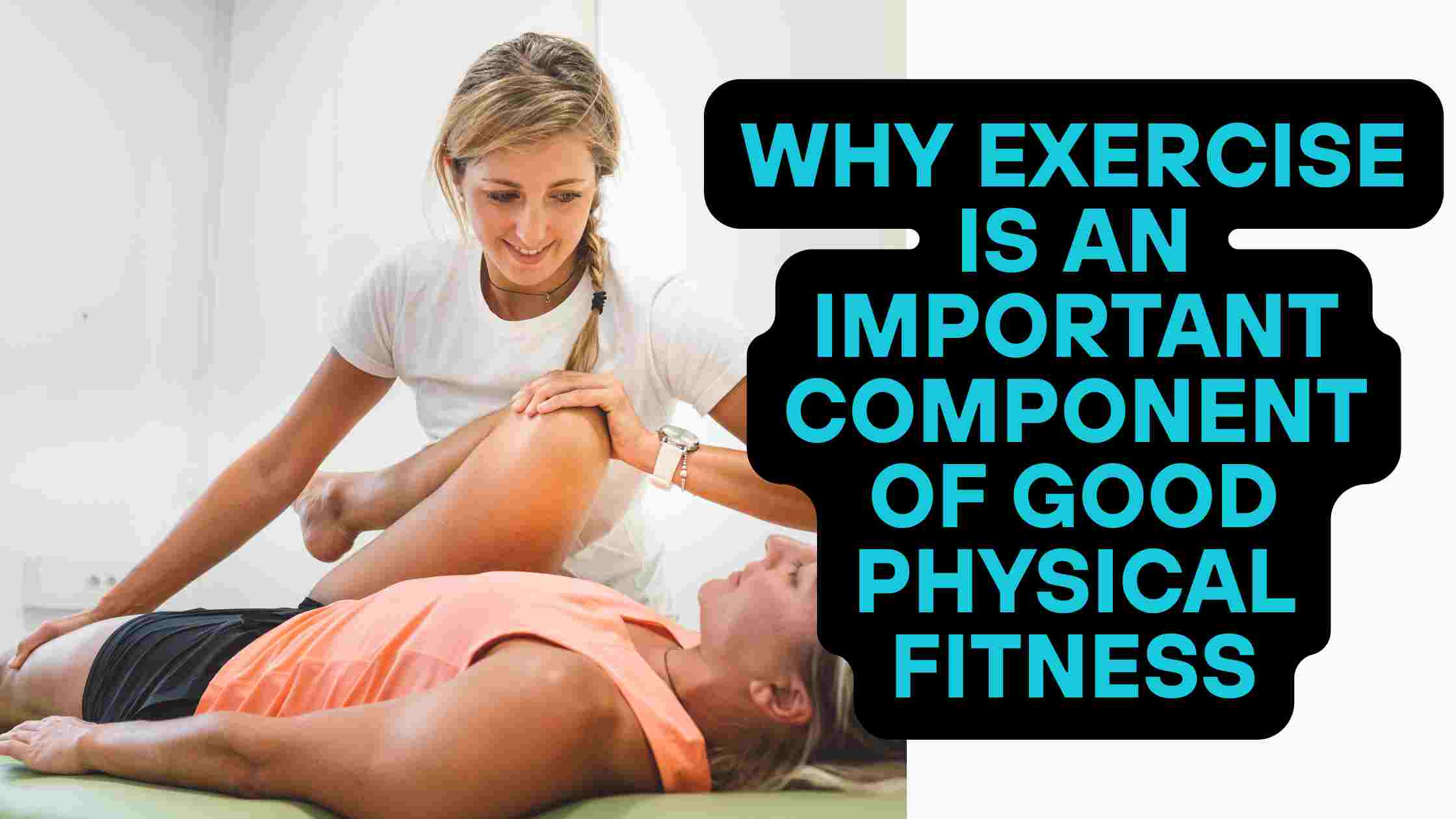
Why Exercise Is an Important Component of Good Physical Fitness
Have you ever wondered why everyone—your doctor, your trainer, even your favorite podcast host—keeps repeating that exercise is essential for physical fitness?
I used to think exercise was just for people who wanted six-pack abs or to lose weight fast. But I’ve learned firsthand that exercise is about so much more than appearance. It’s the foundation of physical fitness. Without it, good health becomes much harder to maintain.
Read our trending blog on Why Bouncing During Stretching Is Very Dangerous
So, let’s answer the big question: Why is exercise an important component of good physical fitness?
What Does Physical Fitness Really Mean?
Before we dig into the importance of exercise, we need to understand what physical fitness actually involves.
Physical fitness isn’t just about being slim or looking strong. It refers to your body’s ability to:
- Perform daily activities without getting overly tired
- Build muscular strength and endurance
- Maintain flexibility and balance
- Support heart and lung health
- Recover quickly after physical exertion
To put it simply, physical fitness is your body’s capacity to function well. And the engine behind that capacity? Exercise.
Why Exercise Is the Key to Good Physical Fitness
You can’t buy physical fitness. You can’t cheat your way into it. Exercise is the non-negotiable ingredient.
Here’s exactly why exercise is such an important component of physical fitness.
1. It Builds and Maintains Muscle Strength
Want to lift groceries without pain? Or climb stairs with ease?
Regular exercise, especially resistance or weight training, keeps your muscles strong. That strength supports posture, protects joints, and reduces injury risk. Without consistent exercise, muscle loss (called atrophy) can start in as little as two weeks.
2. Exercise Supports Cardiovascular Health
Your heart is a muscle—and it needs training, too.
Aerobic exercises like walking, running, or swimming strengthen your heart and improve blood flow. They also lower blood pressure and bad cholesterol. This directly impacts your overall physical fitness and longevity.
3. It Increases Endurance and Stamina
Do you get tired quickly doing everyday tasks? That’s a sign your endurance is low.
Exercise increases your energy production and oxygen efficiency, helping you last longer during both physical activity and daily life.
4. It Keeps Your Body Flexible and Mobile
As we age, we stiffen up. But regular movement—from dynamic stretches to yoga—keeps your body limber.
Flexibility improves range of motion and reduces the chance of sprains, strains, or falls.
5. Exercise Helps Control Weight
While fitness isn’t just about size, body composition matters. Exercise helps burn calories and regulate metabolism, supporting healthy weight management—which affects joint health, energy levels, and more.
6. It Boosts Mood and Mental Focus
You can’t talk about physical fitness without touching on mental well-being. Exercise increases serotonin and endorphin levels. It fights off stress, anxiety, and depression—mental roadblocks that often stop people from being active in the first place.
I know this from experience. After just a 30-minute workout, I feel like I hit the mental reset button.
“Why is exercise an important component of good physical fitness?”
Answer: Exercise strengthens the muscles, heart, lungs, and joints, improves flexibility and endurance, regulates weight, boosts mental focus, and supports your body’s ability to function well—making it the core of physical fitness.
What Happens If You Don’t Exercise?
You can eat well, drink water, and get plenty of sleep, but without exercise, your body slowly starts to break down. I’m not trying to scare you—just being honest.
Without regular physical activity:
- Muscles weaken and shrink
- Bones become brittle
- Balance and coordination decline
- Fatigue increases
- Heart and lung capacity decreases
Even worse, avoiding exercise long-term can lead to lifestyle diseases like diabetes, hypertension, and heart disease.
It’s not just about staying fit. It’s about staying functional.
Types of Exercise That Contribute to Physical Fitness
To cover all areas of good physical fitness, your routine should include a mix of:
🔹 Cardiovascular Training
Examples: Running, cycling, swimming, brisk walking
Benefits: Improves heart and lung health
🔹 Strength Training
Examples: Weight lifting, resistance bands, bodyweight workouts
Benefits: Builds and preserves muscle, supports joints
🔹 Flexibility Training
Examples: Yoga, stretching, pilates
Benefits: Enhances range of motion and posture
🔹 Balance and Coordination Work
Examples: Tai chi, balance boards, agility drills
Benefits: Prevents falls and injuries, especially in older adults
I personally like to mix things up. Three days of strength training, two days of cardio, and daily stretching—it keeps my body challenged and my mind engaged.
Real-Life Benefits of Staying Active
Let me be blunt: when I skip workouts, I feel it.
My back starts to ache. My energy dips. My stress level goes up. But when I stay consistent with exercise, everything from my digestion to my sleep quality improves.
That’s not a coincidence—it’s the power of fitness through movement.
Exercise Isn’t Optional—It’s Essential
If there’s one thing I hope you take from this, it’s that exercise isn’t a luxury or a hobby—it’s a necessity. It’s the core of what keeps your body working the way it should.
Without exercise, good physical fitness simply isn’t possible.
So, the next time someone asks, “Why is exercise an important component of good physical fitness?”—you’ll know the answer. You’ll feel it in your bones, in your breath, and in your energy.
And hopefully, you’ll be moving your body with purpose, one step at a time.
Cite this article
You can copy and paste your preferred citation format below.
Martin, L. & Arquette, E.. (2025, May 9). Why Exercise Is an Important Component of Good Physical Fitness. Coursepivot.com. https://coursepivot.com/blog/why-exercise-is-an-important-component-of-good-physical-fitness/



